Why are carts on wheels (C.O.W’s) considered an essential piece of furniture in the medical arena?
Carts on wheels (C.O.W.S.), also known as medical carts or rolling carts, are considered essential in the medical arena for several reasons:
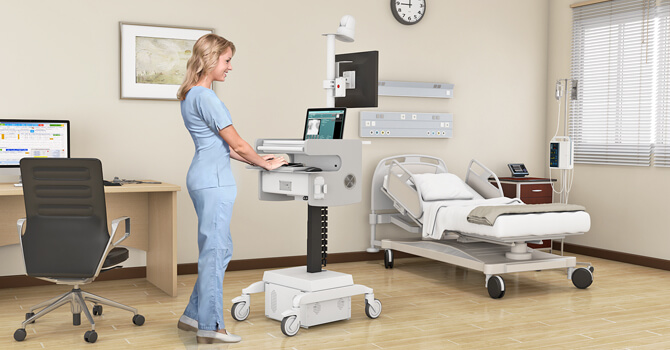
Mobility and Accessibility:
Carts on wheels are designed to be easily movable, allowing healthcare professionals to bring essential tools and equipment directly to the point of care. This mobility enhances efficiency and accessibility in a fast-paced medical environment.
 Point-of-Care Service:
Point-of-Care Service:
Medical carts enable healthcare providers to deliver point-of-care services, bringing medications, medical supplies, and equipment directly to patients’ bedsides. This reduces the need for healthcare professionals to constantly move back and forth between patient rooms and centralized storage areas.
Emergency Response:
In emergency situations, quick access to medical supplies and equipment is crucial. Carts on wheels are often equipped with emergency medications, first aid supplies, and life-saving equipment, providing healthcare providers with immediate access during critical situations.
Storage and Organization:
Carts are designed with multiple compartments and drawers, allowing for organized storage of various medical supplies, medications, and equipment. This helps healthcare professionals easily locate and retrieve the items they need, contributing to efficiency and patient care.
Versatility:
Carts on wheels are versatile and can be customized to meet the specific needs of different medical departments. They can be adapted for use in medication administration, wound care, diagnostic procedures, and more.
Infection Control:
Medical carts are often designed with materials that are easy to clean and disinfect. This helps maintain a clean and sanitary environment, contributing to infection control efforts in healthcare settings.
Technological Integration:
Many medical carts are equipped with technology, such as computer workstations or electronic medical record (EMR) systems. This integration allows healthcare professionals to access and update patient information at the point of care, improving workflow and documentation.
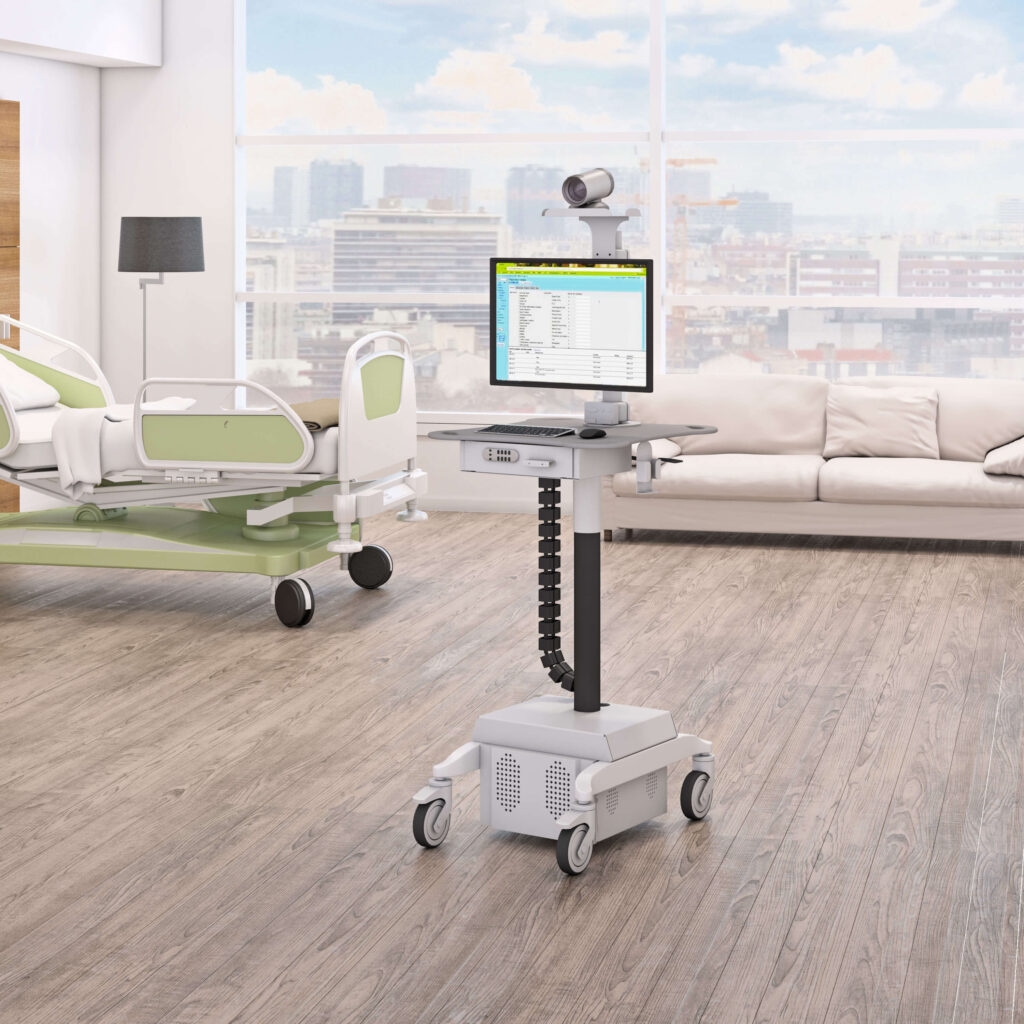
Efficient Workflow:
The use of carts on wheels streamlines workflow by reducing the time and effort required to retrieve supplies and equipment from central storage areas. This efficiency allows healthcare providers to focus more on patient care.
Overall, carts on wheels play a vital role in enhancing the efficiency, accessibility, and quality of patient care in the medical arena. They contribute to a more organized and mobile healthcare environment, allowing healthcare professionals to deliver timely and effective services.
Call us at: +1 (800) 663-3412 or E-mail us directly at: afcsales@afcindustries.com

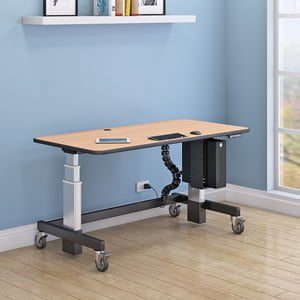
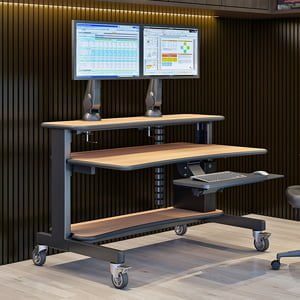
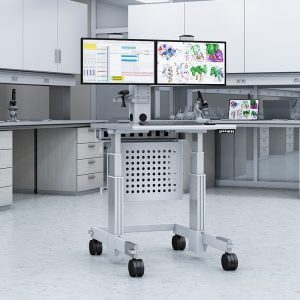
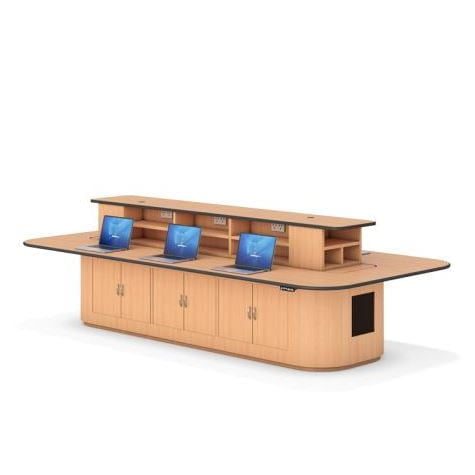
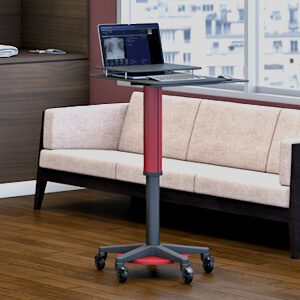
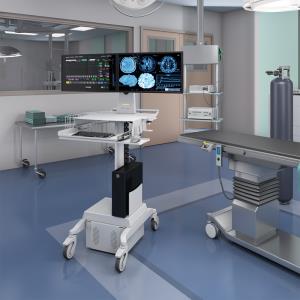
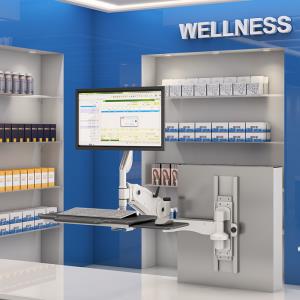
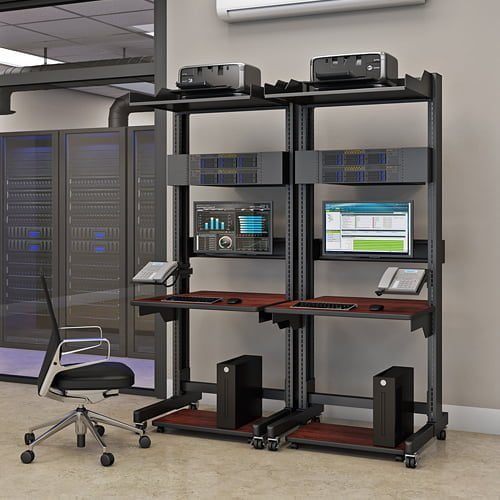

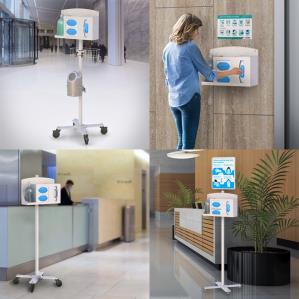
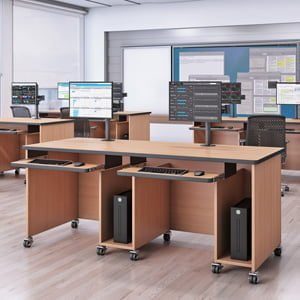
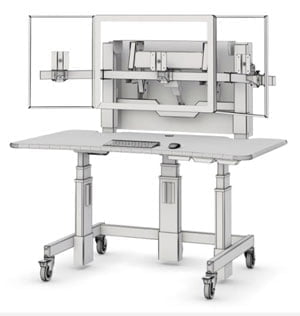
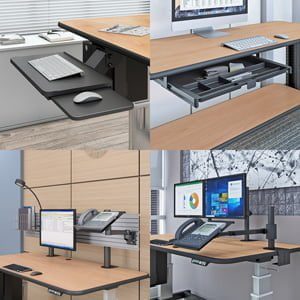
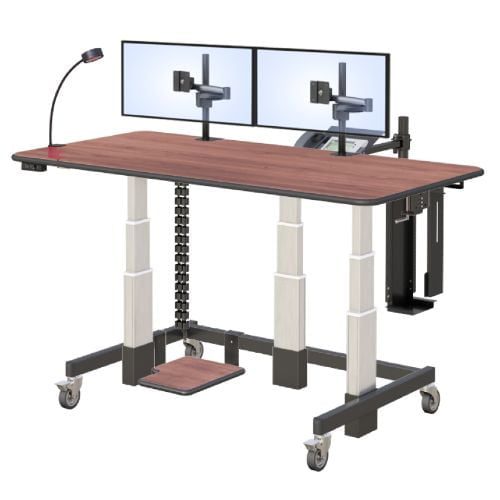
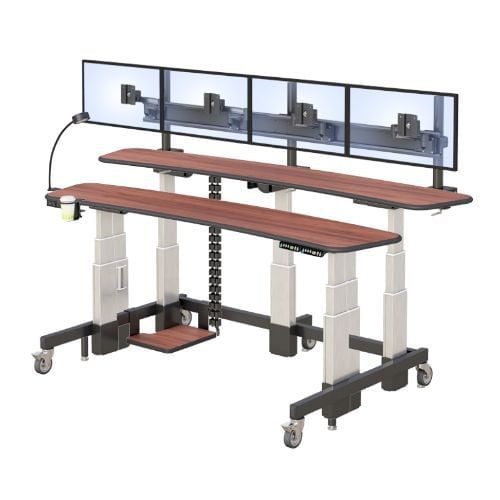
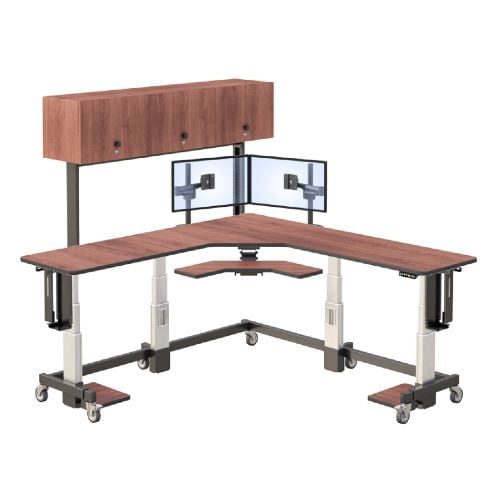
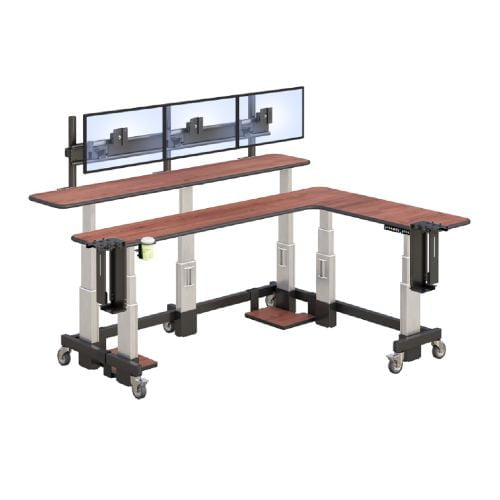
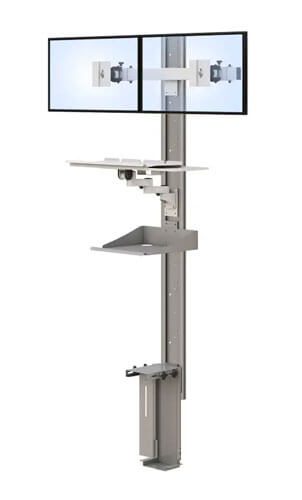
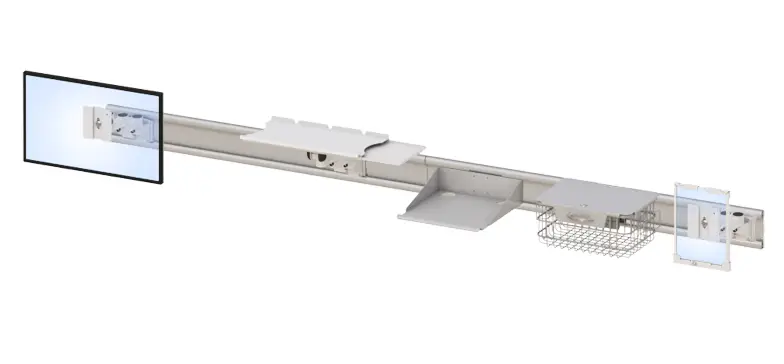
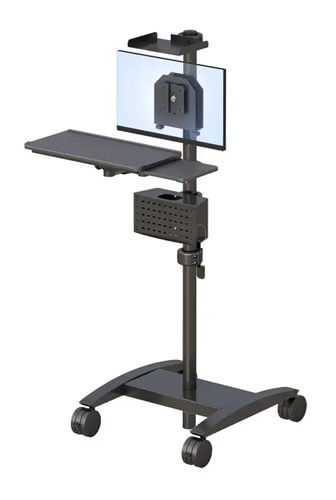
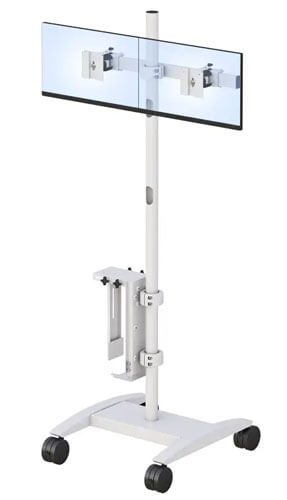
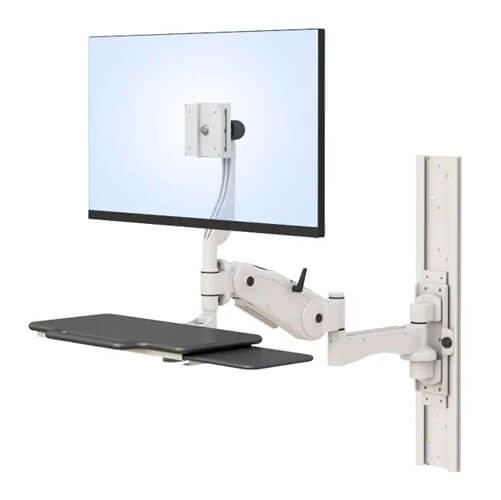
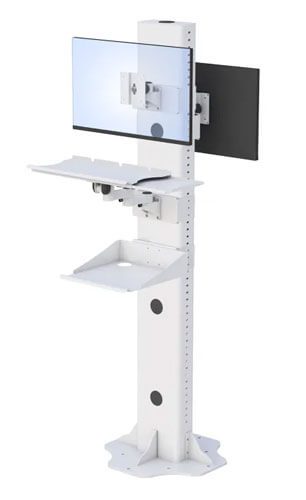
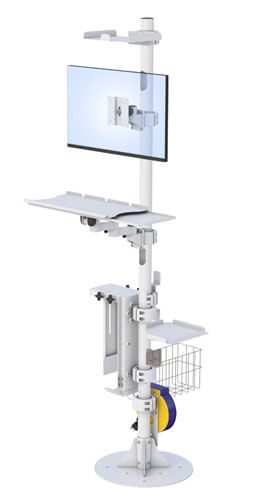
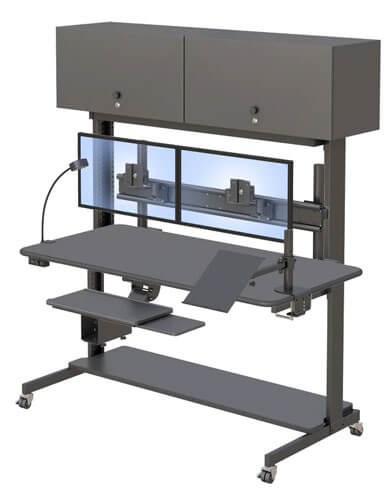
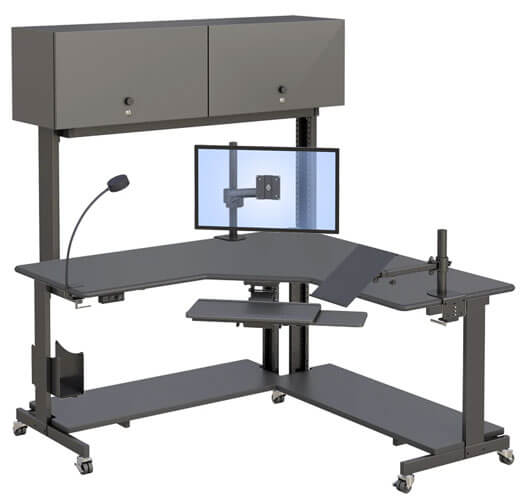
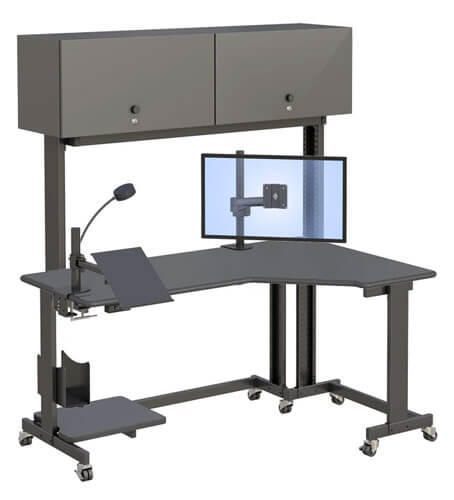
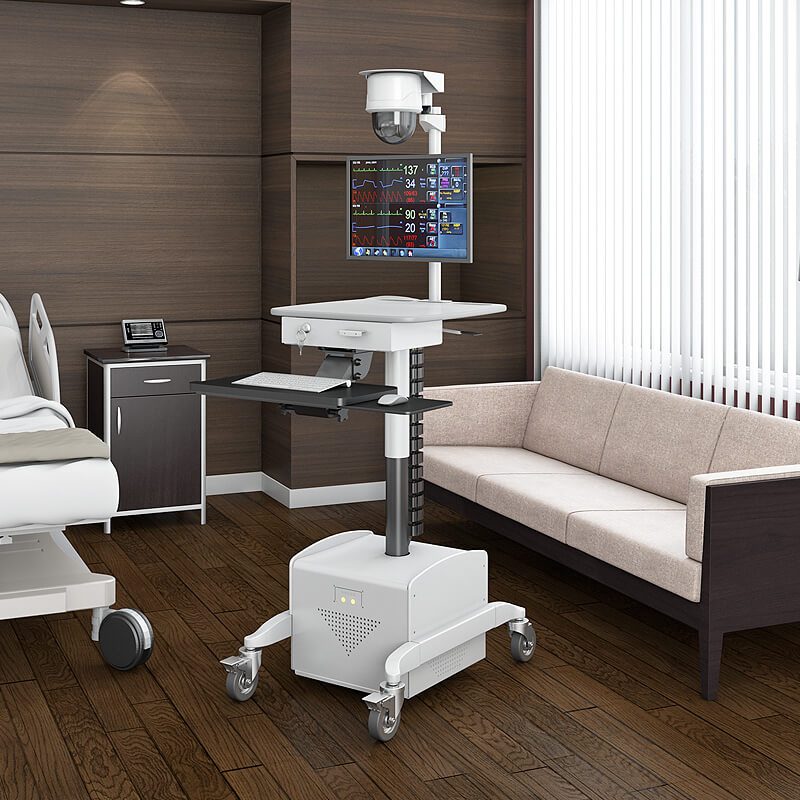 Point-of-Care Service:
Point-of-Care Service: